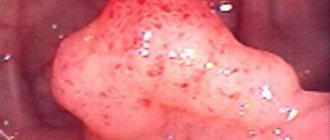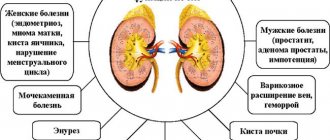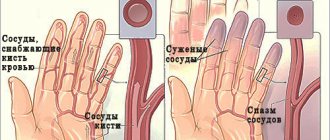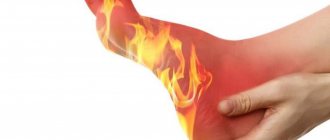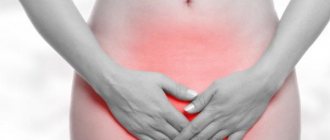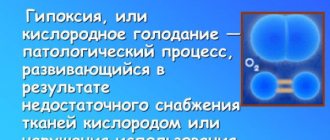Belching after eating is a voluntary or involuntary release of air masses (or gases) from the stomach or esophagus. This occurs through the oral cavity after a sudden change in the size of the diaphragm, which occurs quite abruptly. Quite often, belching food after eating can also be accompanied by extremely unpleasant odor from the mouth. In general, if the condition appears quite often, this may be a signal of an almost fully formed disease, which, of course, implies adequate treatment and preliminary diagnosis.
Belching after eating: reasons
The appearance of belching is not only a natural physiological manifestation, but can also be caused by pathologies of internal organs. Factors that provoke physiological belching:
- A quick meal that promotes the swallowing of air, which is subsequently released in the form of belching. When a person is in a hurry, food does not have time to be completely chewed and enters the stomach in a partially crushed form, which complicates the digestion process.
- Eating any food during telephone conversations or in a state of high emotional stress.
- Binge eating.
- Aerophagia. In this state, a person swallows excess air not only during a meal, but also regardless of food intake.
- Drinking carbonated water, during which only the liquid is absorbed, and the air comes back out with a characteristic unpleasant sound. Products that increase gas formation also include milk, onions, oxygen cocktails, ice cream, legumes and cabbage.
- Excessive physical work or any exercise after a heavy breakfast (lunch, dinner or even a snack). As a result, the natural peristalsis of the digestive organs is disrupted, so it is recommended to avoid any heavy labor for at least 2 hours after eating.
- Pregnancy (especially the second trimester). During this period, the growth of the uterus contributes to the displacement of internal organs, which leads to the accumulation of gases, and then their natural discharge. In this condition, a woman’s belching is often a consequence of eating sweets, fatty foods, and also an uncomfortable body position.
Causes of pathological belching:
- Pancreatitis.
- Gallbladder pathologies.
- Diseases of the duodenum.
- Gastritis.
- Gastroduodenitis.
- A hernia located in the esophagus.
- Ulcerative lesions.
- Infestation with parasites.
- Oncological diseases when there is frequent release of air.
- Diseases of the heart and blood vessels, damage to the nervous system (in rare cases).
Belching after eating, the cause of which is hidden behind dangerous diseases, is often accompanied by discomfort, pain, and other symptoms. In such cases, you should not postpone your visit to the doctor and self-medicate.
Pathological etiology of belching
Belching after eating is not always harmless. A frequently recurring and long-lasting phenomenon may be a symptom of a serious illness that requires special treatment. Constant belching occurs in diseases of the gastrointestinal tract and cardiovascular pathologies. Frequent and intense belching is observed in the following pathologies: diaphragmatic hernia, problems with the functioning of the lower esophageal sphincter, stomach or duodenal ulcers, dyspepsia, gastroesophageal reflux, diseases of the pancreas and bile ducts. This also occurs with appendicitis.
The pathological etiology of regurgitation occurs with pancreatitis, gastritis, gallbladder diseases, gastroduodenitis, esophageal hernia. Belching is most often observed with gastritis with high acidity, chronic or acute pancreatitis, bulbitis, and esophagitis. Cardiovascular manifestations occur with cardiospasms, heart failure, and aneurysm of the descending aorta.
The cause of belching can be neurotic aerophagia or neurosis and even such anomalies as problems with nasal breathing, dental diseases and diseases of the oral cavity, excessive salivation.
Types of belching
There are several types of belching depending on the source of its occurrence:
- Sour belching - indicates an increase in the acidity of stomach juice.
- Bitter - appears as a result of the reflux of bile into the stomach.
- Putrid. This type of belching is characteristic of diabetes, as well as with stagnation of undigested food and its fermentation.
- Belching that smells like acetone.
- Belching air.
- Belching food. Its appearance is caused by small portions of stomach contents entering the oral cavity along with air. A common cause of such belching is overeating or vigorous physical labor immediately after eating.
Causes of sour belching:
- Inflammation of the stomach lining (gastritis).
- Reflux. In this condition, the valve located between the stomach and esophagus does not work properly, so acidic juice constantly enters the esophagus and then into the oral cavity.
- Ulcer.
- Stomach cancer.
Causes of bitter belching:
- Gastroduodenal reflux. This disease is characterized by the entry of bile into the stomach, and not into the usual sections of digestion (intestines and duodenum).
- Injuries, abdominal hernias and tumors.
- Drug therapy with certain drugs (antispasmodics, muscle relaxants) that reduce muscle tone in the sphincter.
- Operations during which the sphincter muscles were cut, due to which bile begins to regularly flow into the stomach.
- Chronic form of duodenitis.
- Pregnancy, which results in increased pressure on the duodenum.
Why is burping after eating accompanied by the smell of acetone?
- Diabetes mellitus and its complications (hyperglycemia, neuropathy, impaired carbohydrate metabolism). In these cases, the patient needs urgent consultation with an endocrinologist.
The essence of the phenomenon
At its core, a belch is a sharp, unexpected (often accompanied by sound) release of air mass through the mouth from the esophagus or stomach. Often, belching after eating has an air exhaust with admixtures of gastric contents. This process occurs with a sharp contraction of the gastric muscles when the cardiac sphincter is open. Belching food begins almost from birth and accompanies a person throughout his life in different circumstances and for different reasons. Ideally, with a well-functioning gastrointestinal system and proper nutrition, this phenomenon should not occur, but, unfortunately, this is very difficult to ensure, and therefore it is necessary to analyze the circumstances under which it occurs.
When belching is observed, its causes can be physiological or pathological in nature. The nature of this anomaly is also different: the release of clean air, its exhaust with food impurities, sour belching, belching with bile, etc. The released composition may leave a different taste and odor in the mouth. Physiological processes are of a short-term, isolated nature and do not cause much discomfort. Frequent or constant belching of air, pain during belching, strong odor and taste indicate the seriousness of the etiology.
The pathological mechanism is accompanied by additional symptoms: heaviness in the stomach, nausea, vomiting, pain syndromes.
Belching in children
In infancy, belching in humans is considered normal. Swallowing air during feeding is due to the need to regulate pressure inside the stomach.
An infant's imperfect digestive system leads to retention of a gas bubble in the stomach or its passage into the intestines. As a result, the baby becomes bloated and cramps in the intestines may begin. The child's restlessness and crying can only stop after burping the air. This explains the need for the baby to remain in an upright position immediately after feeding, and after burping he can be laid down. As the body grows, this problem resolves itself.
Causes of burping in older children:
- Improper nutrition.
- Exciting games during meals.
- Watching cartoons while eating.
- Adenoids.
- Chronic tonsillitis or runny nose.
- Increased salivation.
- Pathologies of the liver, biliary tract.
The occurrence of frequent belching in a child should not be ignored. Parents should first show their child to the pediatrician. Easily excitable children are much more prone to problems with the digestive system, so they may need to consult a neurologist to understand why belching occurs regularly after eating.
Etiology of physiological phenomenon
Most often, belching is a normal reaction of the body to certain external influences and is in no way associated with diseases. In infancy, especially in infants, this phenomenon is associated with the ingestion of excess air mass along with food or simply due to improper breathing. Adults are also not immune to this phenomenon if, for example, they are engaged in an active conversation during lunch. This phenomenon is called aerophagia.
The following main physiological causes of belching can be identified: abuse of carbonated drinks, beer and kvass, drinking at extreme temperatures (cold or hot), drinking air (whipped) cocktails, one-time overeating, excessive use of chewing gum, poorly chewed food, eating on the go, using fast food establishments, physical activity or exercise immediately after eating, sleeping immediately after eating, emotional stress during lunch, smoking. Some foods can cause belching: onions, garlic, legumes, cabbage, whole milk, ice cream. When foods are consumed incorrectly, flatulence also occurs.
Physiological abnormalities appear briefly and go away on their own quite quickly. There is no treatment for such processes. In order to avoid such troubles, one should observe a basic culture of food intake, stabilize the mode of its intake and optimize the diet, taking into account the individual characteristics of the body, in particular, reactions to foods.
In some cases, in addition to belching air, the stomach hurts or a feeling of heaviness in the stomach is felt, although no pathologies are noted. The following reasons can lead to such combinations:
- Smoking immediately after eating: air and smoke from smoking can lead to this phenomenon.
- Eating fruits during or immediately after meals promotes the interaction of organic acids with the mineral contents of food, which causes an unnecessary reaction. Fruits should be consumed before meals or 30-40 minutes after lunch.
- Drinking tea after meals causes the enzymes contained in the tea leaves to interact with proteins, complicating their processing in the stomach.
- Taking a bath immediately after lunch reduces blood flow to the stomach, which impairs the digestion process.
- It is contraindicated to wash down food with cold drinks.
Physiological belching therapy
To eliminate such an unpleasant symptom after eating as belching, which has a physiological origin, it is enough to follow the following recommendations:
- Chew food thoroughly.
- Don't rush while eating.
- Do not overeat to avoid nausea.
- Refuse semi-finished products and fast foods, dry food.
- Avoid physical activity after meals.
- Do not drink carbonated water, oxygen cocktails, beer, or foods that promote fermentation.
- Don't talk while eating.
- Eat in a calm state, avoiding overexertion.
- Eat only high-quality products and products.
- Do not drink hot drinks (coffee, tea), do not use straws.
- Avoid chewing gum.
- Stop smoking.
- Take a walk for half an hour after eating.
As a rule, physiological belching does not require specific treatment; it is enough to eliminate provoking factors so that it does not appear after eating.
Treatment
Let's continue the conversation about the causes and treatment of belching after eating. Since belching is only a symptom, the treatment regimen is prescribed depending on the disease that caused it. The diagnosis here can only be determined by a specialist based on a set of diagnostic studies. Both medicinal, conservative and surgical treatment can be prescribed.
If no pathological causes have been identified, the doctor will advise you to create the right diet. Dishes with a high content of sauces, spices, and seasonings are excluded. The patient should limit himself in consuming eggs, seafood, and cheeses. You need to focus on a low-carbohydrate and easily digestible diet, and turn to fractional meals. Cook food by steaming, stewing and boiling.
To prevent belching from tormenting you, the first thing you need to do is give up bad habits, eliminate foods that cause increased gas formation from your diet, and follow a healthy lifestyle. We should not forget about the preventive diagnosis of gastrointestinal diseases.
Treatment of pathological belching
The constant occurrence of belching, repeated within an hour, may indicate a pathology of the digestive system. In such cases, treatment at home will not be enough; you will need to consult a doctor to determine the cause of this condition and prescribe the necessary therapy.
There are no general recommendations for eliminating pathological belching, since the sources of its occurrence can only be determined by a doctor, and each of them will require a specific therapy regimen, taking into account the individuality of the patient. The only condition for the treatment period for almost all patients is to follow a diet that excludes irritating foods (fatty foods, fried foods, marinades, smoked foods, seasonings, spicy foods). Eating should not only be frequent, but also in small portions, which improves the efficiency of food digestion.
It is not recommended to postpone a visit to the doctor if belching is accompanied by an additional symptom such as pain in the abdominal area. This sign can signal dangerous diseases, including malignant tumors.
A sign of trouble
In many cases, belching is a symptom not of functional, but of organic diseases of the gastrointestinal tract, in which physiological changes occur in one or another organ. For example, if it has a sour taste, this may indicate increased secretion of hydrochloric acid, gastroduodenitis or gastric ulcer.
Article on the topic
Prevention of constipation: 9 reasons for bowel dysfunction
And belching “rotten eggs” may even indicate tumor diseases or cicatricial changes in the stomach. Because of them, the exit sphincter is blocked, food cannot leave the stomach and begins to ferment, releasing gas with a corresponding odor.
Such belching cannot be left unattended, just like sour, bitter or tasteless burps. People very often get used to such symptoms: at first they are alarming, but then the person finds an excuse: “Who doesn’t have belching (heartburn, flatulence, etc.)!” This is fundamentally wrong, because because of this, valuable time is lost, and seemingly harmless manifestations turn into a serious illness. Therefore, it is necessary to see a gastroenterologist.
Traditional methods
If belching is not a consequence of diseases of the digestive system, then it can be eliminated at home without using medications.
Examples of folk recipes:
- Mix 100 grams of cranberries, aloe with a tablespoon of honey, pour a glass of boiling water over everything. It is recommended to take the tincture three times a day for one week (one tablespoon). The course of therapy can be repeated after a month.
- Mix carrot and potato juice in equal portions. Take the drink three times a day before meals (half a glass).
- Eat a small raw carrot or one apple.
It is important to understand that traditional methods help eliminate only physiological belching, which appears under the influence of certain factors. If such an unpleasant symptom is a manifestation of any disease, then it is impossible to cope with it without the help of qualified specialists.

